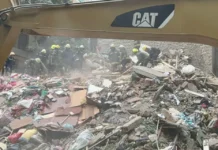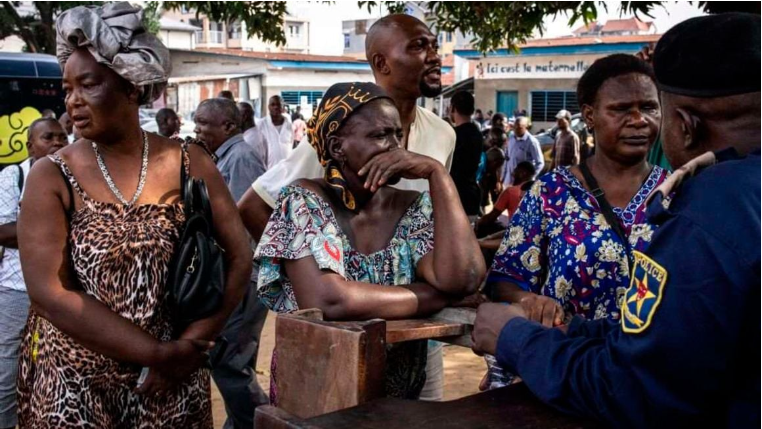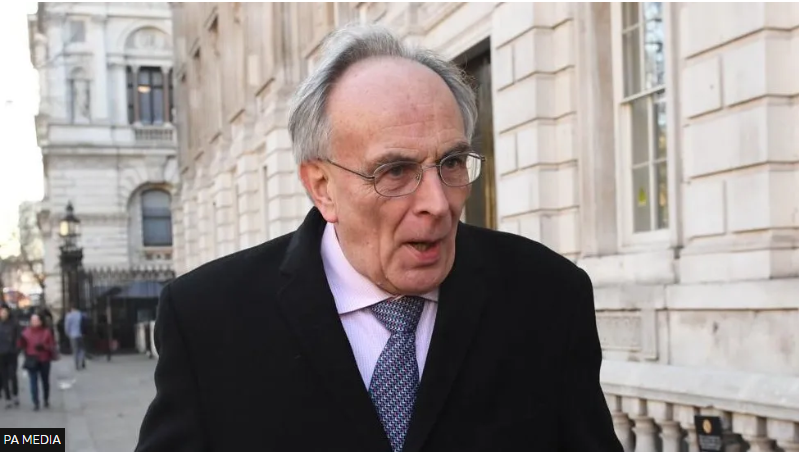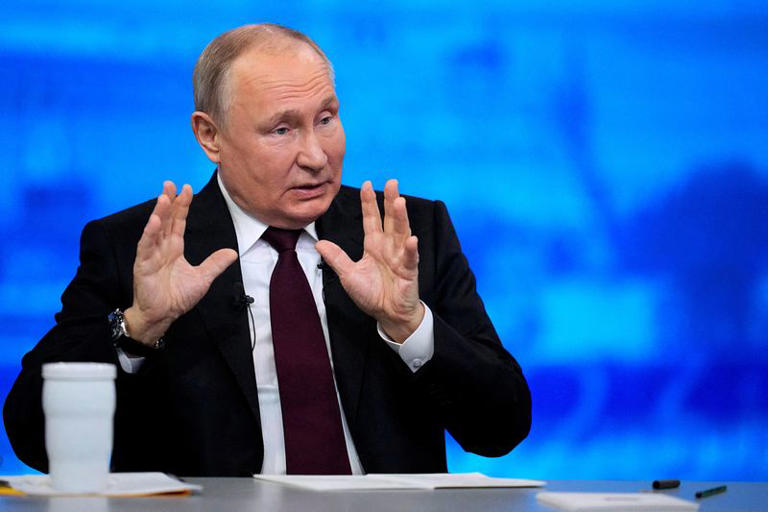See that chart above?
You are watching an economy begin to die. That, my friends, is what economic devastation looks like. It says that unemployment claims skyrocketed to 7 million last week. That’s a number so high, so fast, that there’s no parallel in all of recorded history — even remotely.
The American economy is undergoing the largest shock in history. It’s a shock faster, bigger, and more devastating than any war, which is one of many reasons the war metaphor is inadequate. We have literally never experienced such a thing before.
Why is the American being left to die? Because not nearly enough is being done about. This shock is unprecedented in history — and the response needed to be, too. Instead, Congress and the Prez passed a stimulus bill that’s far, far short of the mark. How much so? In what precise ways?
Let’s think about it together.
The first reason the economy is dying is that the stimulus is inadequate because it’s simply far too little. We’re going to do a little math together — don’t get scared, it’s math any grade schooler can handle. How large is the US economy? It’s $20 trillion per year. Of that, about 99% of the number of firms are small businesses. How large is the portion of the stimulus outlined to support businesses, especially small ones? $500 billion. Are you seeing a problem here yet? You should. That’s about just 2.5% of the economy over a year, which means this.
The portion of the stimulus meant to support business is enough to keep the economy going for…just one week. (Sure, we can adjust those numbers up and down. If I assume the 80% of the economy is business, not 100%, the stimulus is enough to keep the economy going for…two weeks. You see the problem, perhaps.) Think about that for a second. Just one week of support, amidst the greatest crisis since the last World War. What the?
This shock is historic precisely because it’s going to cause the economy to shut down — as in waves of businesses to literally shutter its doors as people stay at home — for far, far longer than a week. It’s already been a week. It’s going to be months until any semblance of normality is resumed. But by then, it will be too late: because this stimulus only supports the economy for a week, most of it will be…dead.
Yes, really. That brings me to the second reason the stimulus is short of the mark. This stimulus isn’t quick, large, or simple enough to buoy confidence — and so people are beginning tp panic. Even if I want to get what little support is being offered — say as a small business owner — how do I begin? Where do I turn? Even I myself can scarcely figure out the answer, and I’ve pored over the various documents. It’s a tangle of red tape, a bureaucratic mess. That might not sound like a big deal, but it is. Why?
Keynes pointed out about a century ago that the key to staving off depressions is confidence. If I believe that things will be OK, and you do too, then maybe we won’t hoard our money and lay off our employees and so forth — and the vicious spiral of depression won’t result. But If I can’t figure out how to access even what little support there is…then I will lose confidence, fast. The vicious cycle will set in all the sooner.
That is precisely what we see happening. Why have ten million people filed for unemployment in just two weeks? Because there’s not enough support to keep the economy going, and because what little there is isn’t producing a feeling of confidence. Instead, because it’s a maze and a mess, people are fast losing confidence in institutions and systems. Employers are laying people off — even if they don’t have to, because they can’t figure out how not to have to.
Meanwhile, the media is touting a $1200 check to every American. The truth is very different. That $1200 has all kinds of tests attached to it. If you make this much as a single person, that much as a married couple, and so on. It’s true that 90% of people will see something — but most people won’t see nearly enough.
Let’s do the same calculation we did for businesses for people. The economy is $20 trillion. The US has 127 million households, give or take. Divided equally, that produces income per household of about $150k. But of course, Americans aren’t nearly that rich. Median income is only about $60K — because the rich skim a full half the economy right off the top. 60K is about $1100 a week. That means the much vaunted stimulus check equals about just a week’s worth of the average person’s income.
Do you see the weird parallel here? The stimulus is so small it supports businesses for just one week. And exactly the same is true for people — it supports the average person for just one week, too.
Just one week. It’s already been more than a week.
That brings me to the third reason this stimulus is inadequate: what good is it supporting people and businesses for just one week…with all kinds of strings attached…when the crisis will last months? That money won’t be paid out for several more weeks, perhaps months in many cases. And the conditions attached to it make it a sum that’s almost meaningless for many people. Are you seeing the problem again? Timing and conditionality: what absurdly little support there is will arrive far, far too late. Too late for what? Not just too late to pay the bills. We can all see that coming. Too late to prevent panic, which is the key to averting any depression.
And who knows how to get it all? How much you will get? Whether or not you’ll need to hire a lawyer to see any funds at all? Who to even apply to? because the design of this stimulus is so obscure, keeping everyone in the dark, there’s no real feeling of reassurance or confidence gently lifting up the economy. Hence, people are beginning to panic. That is why ten million have filed for unemployment in the last two weeks alone.
Now let’s think of unbelievably destructive that really is. How much is “ten million people”, anyways? The US labour force is about 164 million people. Ten million is already six percent of it. That might not sound like a lot, but it is: it’s about 3 percent a week. If that trend continues, it’ll be twelve percent in a month. 24 percent in two months. That’s a quarter of the economy, filing for unemployment…in a matter of weeks. That’s fifty percent in four months. How long do you think Coronavirus will last? Two months? Three? Four? Bang!
Coronavirus is an extinction level event for modern economies. That is why all this, my friends, is an event the likes of which the modern world has never really seen before. Not even in war, natural calamity, or financial crisis. Because when a society reaches even about 25% or so of sudden, irreversible, long-term, hardcore unemployment, the economy is more or less finished. It cannot recover for generations. That number means that huge numbers of businesses are shuttered, jobs are destroyed never to come back, incomes vanished, savings gone, homes foreclosed on. It is the end of families, relationships, stability, hope. It is usually the end of democracy, too, as people turn to a strongman in their rage and discontent and despair. Economic ruin is the end of a gentle, modern, wise culture, society, and politics in this way — the root of all ruin.
All that collapse is now very much in America’s near future — not next year, but this summer. Because the response to Coronavirus has been profoundly inadequate. You can see it in everyday life — doctors fashioning masks from pizza boxes, the dying sharing ventilators. All this reflects the simple fact: the American government didn’t do nearly enough about the greatest economic shock in modern history. It barely did anything at all.
In the end, when they write the books, I’m confident they’ll say this. The American government supported people and business for one week. Just one week. Amidst an epic, historic crisis which was to last months. As a result, the economy seized up and died, like a Coronavirus patient who couldn’t breathe anymore, but didn’t have a ventilator, either.
But that was needless. Because money at this scale is just a social fiction. The government can and should support the economy for as long as it takes, guaranteeing both business and personal incomes, as well as writing checks every single month. That doesn’t plunge a society into “debt.” It’s not money we are “borrowing” from anyone else, like say China. We are just lending it to ourselves, which means that we can cancel the debt afterwards with no ill consequences, either. The central bank can literally write off whatever debt is accrued the day after the crisis subsides. And if you doubt that, go ahead and think about who it’s owed to. The government owes money to whom, exactly? The answer is: nobody. It has only borrowed from itself, and therefore it can cancel the debt, too.
No, there won’t be “inflation.” What there will be is massive deflation if none of the above happens. All those millions filing for unemployment? That means wages fall massively, and prices follow, too.
Think of it like filling a hole. Coronavirus has shredded a massive, gaping hole in the heart of the economy. Either the government fills it, borrowing thread, buying needles, and employing people to stitch and sew — or like any hole in a fabric, it grows, one thread fraying at a time, leading to the next. The government filling the hole is not bad economics, or irresponsible — it is the only sensible thing to do. When the fabric of the economy is whole again, then the “debt” of buying all that new thread is immediately revealed to be imaginary. If we hadn’t done it, we wouldn’t have had an economy at all. The resources we “borrowed”…from ourselves tomorrow…for use today were therefore necessary, life-saving, critical…investments. Without them, we wouldn’t have had a tomorrow at all.
Money in an event like this is a social fiction. It is a public good, whose use we must immediately and radically and dramatically expand and maximize, so that massive, life-saving, social-scale investment can happen, immediately.
Americans don’t quite understand that. Capitalism has convinced them that “debt” is as real as the violence of a gun. But it isn’t. “Debt”, “credit”, “money”, and “finance” — these are all just social constructions. There are times when societies need to go into massive “debt”, which really means invest massively, so that everyone and everything, including life as they know it, can survive. That simply means they need to allow their mechanism of collective action, the government, to “borrow” artificially limited resources from itself, tomorrow for everyone, today — or else we don’t have much of a tomorrow. This is one of those moments. Or else. Life as we know it implodes.
Will Americans get that, though? Before it’s too late?













